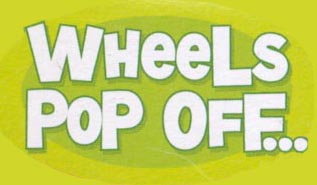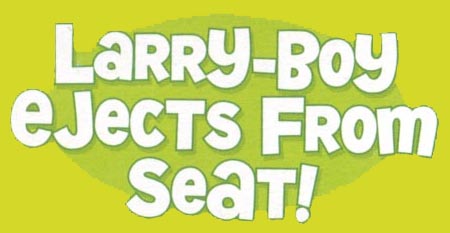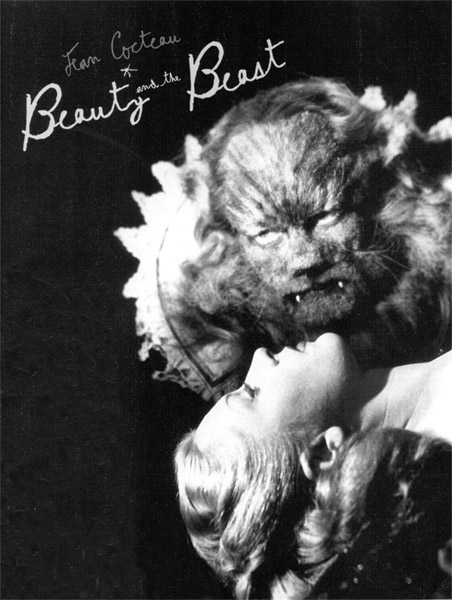


So far, I am not at all a fan of the new special effects. Okay, Jurassic Park, although stupid, had some pretty cool carnivorousness toward the end. But most movies with a lot of special effects are useless. Take the Matrix. Please. “If you want this movie to be over, and to forget it ever happened, you take the beige pill.”
First of all, and this is just my warm-up argument, these so-called special effects aren't even that special. I hate to break it to you George, but Jar Jar Binks doesn't look all that believable bouncing, bobbing and moving in ways that defy even Dolly Parton. What's more, I bet they already have the technology to make things look real, only these special effects geeks don't have the slightest notion of what that is. Geek is a complex term. “That's the way dragons are supposed to look,” they'll say. “That's what amphibious lizard men do. They can move three times faster than average humans like yourself.” [me driving a nail into my own forehead]
But this is like trying to convince thirteen year old girls not to buy Brittney Spears albums. We can't win, so instead, we have to talk about other things. And now for my real argument: The fact is we are all biologically programmed to get more excited by monsters that move and act like human beings, and that usually means people in monster costumes. Listen, I just can't relate to magical blobs and giant fire-breathing crickets. I don't care how many pixels per millipixel they are. And if not monster costumes, at least give them human qualities. Consider the maternal instincts of the queen mother in Aliens and how that heightened your emotional response. We have to see ourselves in things in order to get excited:Think of it in terms of how much humanity a movie needs to be good. More screen time given to ephemeral special effects means less time for real actors to deliver real performances, which get real tears. Subtitles. Onions. But the other problem with this techno-movement, besides just crowding out the human element, is that it's only going in one wrong direction. This is from an interview with Darth Lucas I saw in some newspaper article. Dirty, real ink.
Giant hands, black, thick with fur, reaching in through the windows. Yes, it was King Kong, back in action, and all of the guests uttered loud exclamations of fatigue and disgust, examining the situation in the light of their own needs and emotions, hoping that the ape was real or papier-mache according to their temperaments, or wondering whether other excitements were possible out in the crisp, white night.- Donald Barthelme, The Party

Q: Is it safe to say the best of ILM goes into the latest Star Wars film?
A: It's hard to say now, things move so fast now. The really major breakthrough was Jurassic Park. That's where digital technology became a real entity. It was hard to figure out how those effects were done. From then on, everything was really an adjustment to that. Small moves. But for people in the field, these things are very large. Getting skin correct, getting hair correct, fire and water correct. It takes several years to tackle each one.
Q: They did well with water in The Perfect Storm.
A: They do water better than anyone else. I know (Cast Away director) Bob Zemeckis well, but I thought the water in Cast Away wasn't as good as it could have been. It didn't look perfect.
They do water better than anyone else? My God man, get your priorities together. You need to be out finding some good editors to help keep the next Star Wars film from sucking ass more than you need to be worrying about the perfect puddle. Who gives a sharpie about what the water in Cast Away looked like, I mean, besides you?
The hubris of duplicating nature in movies should evoke the same distaste as human cloning. It's dangerous. It's unnecessary. And only the French would do it. But the notion of achieving standards of perfection in special effects is also troubling in a way that Microsoft and Starbucks are troubling. Part of what makes a movie like Star Wars so great is the creativity sparked by special effects problems. For example, Lucas had originally envisioned Han Solo as a very advanced toaster oven. Foiled by a lack of technology, Lucas had to get creative. He held auditions and came up with Harrison Ford. The rest is history. Now Lucas would have you believe that eventually, all the problems will be solved. You want fire, water, mutant armies? Just push a button. But without challenge, creativity sleeps, and what good is coffee then? I don't want the problems solved. I want coffee. I would rather have six unique interpretations of a capuccino, than the same perfect storm in six 'different' Starbucks. Hey, there's nothing wrong with good special effects in movies. It's just the tedious, non-compelling direction they're going in today that has me all in a bunch.

On a global scale, special effects are also bad because they distract audiences and film makers from the business of demanding and supplying real films. They offer instant gratification like fast food or cocaine. Republicans blame the Columbians. Democrats blame the Republicans. And I just keep getting fatter.
Is there a role for dumb action movies? Sure. Is Hollywood preventing good movies from being made in other countries? I don't know. In fact, maybe by sucking so bad, Hollywood has actually strengthened the rebellion of foreign action films. It does seem like the last few years has seen a tsunami of good action films out of Asia. Or maybe that was just me paying attention. So why then do I care about the effects of George Lucas?
5/27/01 'Pearl Harbor' misses records (Yahoo)

The following is at the Mississippi Review as they implore people to submit articles for their special movie issue:
Discuss This Rant * George Lucas Must Die * Rebuttal from George Lucas
- Email Justin Lake if you want to see the infamous 'classics version of Star Wars' (Classics as in Homer, Greek, Latin, etc). Cool!
- This Animation Sequence proving my point that it's not how much your stick costs, but how you use it.
- Look What I Found:
From A Review of Drunken Master at dumbassandthefagThis is a film which understands, ultimately, that what makes cinema uniquely poignant and affecting is the ability to present motion. Big action films don't do that. They give you a sense of motion, but if you look at them closely, nothing is ever moving. They give false motion through editing and effects.THE MOVIE ISSUE Submit now!So I Clicked
Send us any kind of writing about movies, actors, directors, stuff that happened at the movies, people you met there, how movies changed your life, why you don't go anymore—anything to do with movies. Deadline October 30. Write with fury! Click this!